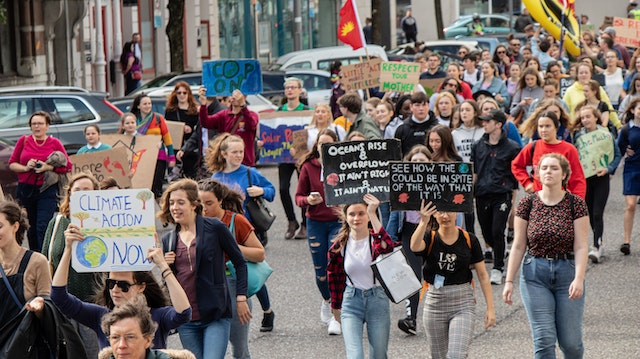Understanding the intersection between Indigenous peoples, land use, and wildfire management is essential in the context of climate change. Indigenous communities have extensive knowledge and deep connections to their lands, which can offer valuable insights into effective wildfire management strategies. Here are some key aspects to consider:
1. Traditional Ecological Knowledge: Indigenous peoples possess traditional ecological knowledge (TEK) that has been accumulated over generations. This knowledge encompasses a deep understanding of ecosystems, including fire regimes, plant species, and ecological processes. Integrating TEK with scientific knowledge can lead to more holistic and effective wildfire management approaches that consider both ecological and cultural values.
2. Land Stewardship Practices: Indigenous communities often have traditional land stewardship practices that involve active management of ecosystems, including the use of controlled or prescribed burns. These practices can help maintain healthy forests, reduce fuel loads, and prevent the occurrence of larger, more severe wildfires. Recognizing and supporting Indigenous land stewardship practices can contribute to more resilient landscapes.
3. Collaboration and Partnerships: Collaborative approaches that involve Indigenous communities, governments, and other stakeholders are crucial for effective wildfire management. Building partnerships based on respect, reciprocity, and shared decision-making can ensure that Indigenous perspectives and knowledge are valued and incorporated into wildfire management strategies. This collaboration can also enhance the capacity of Indigenous communities to actively participate in wildfire prevention and response efforts.
4. Cultural Fire Practices: Some Indigenous communities have cultural fire practices deeply rooted in their traditions and ceremonies. These practices involve intentionally setting fires to promote ecosystem health, maintain biodiversity, and protect cultural sites. Recognizing and respecting these cultural fire practices is vital for supporting Indigenous sovereignty, cultural revitalization, and sustainable wildfire management.
5. Community Resilience and Adaptation: Indigenous communities are often on the frontlines of climate change impacts, including wildfires. Building community resilience and adaptive capacity through initiatives such as fire training programs, community-based emergency planning, and the integration of traditional knowledge into wildfire response can enhance the ability of Indigenous communities to prepare for and respond to wildfires in a changing climate.
6. Land Tenure and Self-Governance: Recognizing and supporting Indigenous land tenure and self-governance rights is crucial in wildfire management. Empowering Indigenous communities to make decisions about their lands and resources allows for the integration of Indigenous knowledge, values, and priorities into wildfire management plans. This can lead to more effective, culturally appropriate, and sustainable approaches to addressing wildfire risks.
Understanding and incorporating Indigenous perspectives, knowledge, and practices into wildfire management policies and strategies is not only respectful and inclusive but also enhances the overall effectiveness and resilience of these efforts. It is crucial to engage in meaningful consultation, collaboration, and co-management with Indigenous communities to ensure that their rights, knowledge, and experiences are recognized and respected in the context of climate change and wildfire management.












